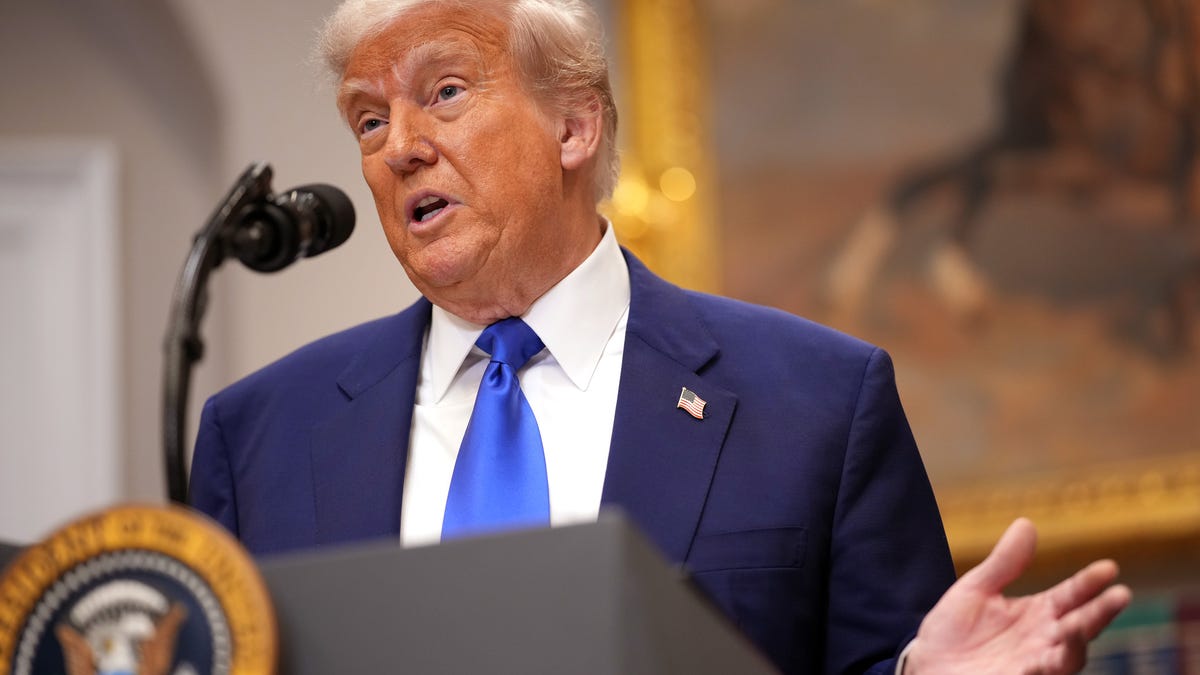Trump Challenges Walmart to Prioritize Community Over Profit in Surprising Appeal
In a striking departure from traditional pro-business rhetoric, former President Donald Trump called on retail giant Walmart to shift its focus from maximizing shareholder profits to prioritizing community welfare. The unexpected statement, made during a campaign stop in Iowa on January 15, 2024, has ignited debate about corporate social responsibility and the role of major retailers in supporting struggling American towns. Trump framed his challenge as part of a broader “economic patriotism” agenda.
The Unlikely Call for Corporate Reform
Speaking to a crowd of supporters in Des Moines, Trump specifically criticized Walmart’s business practices: “These mega-companies have squeezed every penny from Main Street while hollowing out the middle class. I’m saying directly to Walmart’s leadership—it’s time to put American communities first.” The remarks came just days after Walmart announced $12.7 billion in stock buybacks for 2024, drawing criticism from progressive groups.
Political analysts note the irony of Trump—who signed significant corporate tax cuts in 2017—now advocating for corporate responsibility. “This represents a calculated shift toward populist economic messaging,” said Dr. Evelyn Cho, political science professor at Georgetown University. “By targeting a visible symbol of corporate America, Trump is attempting to reclaim working-class voters who felt abandoned by both parties.”
Walmart’s Economic Footprint and Community Impact
As the nation’s largest private employer with 1.6 million U.S. workers, Walmart’s business decisions carry enormous socioeconomic consequences:
- Operates 4,700+ stores across all 50 states
- Accounts for approximately 2% of total U.S. GDP
- Sources 60% of merchandise domestically (down from 80% in 1995)
The company has faced persistent criticism over:
- Wages: Average $17.50/hour (up from $12.81 in 2017 but below living wage benchmarks)
- Local business impact: Studies show 3-4 small retailers close within 5 years of Walmart openings
- Food deserts: While expanding grocery access, critics argue stores displace local alternatives
Trump’s challenge reignites the decades-old debate about corporate purpose. Since economist Milton Friedman’s 1970 doctrine that businesses exist solely to maximize shareholder value, American corporations have largely prioritized short-term profits over broader social impact.
“Walmart faces an impossible balancing act,” noted retail analyst Mark Cohen of Columbia Business School. “They’ve made strides on sustainability and wages, but fundamentally remain accountable to Wall Street. No Fortune 1 company can radically shift priorities without facing investor revolt.”
However, recent developments suggest shifting attitudes:
- 83% of consumers now expect companies to address social issues (2023 Edelman Trust Barometer)
- The Business Roundtable revised its corporate purpose statement in 2019 to include stakeholders beyond shareholders
- ESG (Environmental, Social, Governance) investing surpassed $41 trillion globally in 2023
Walmart’s Response and Potential Pathways Forward
Walmart CEO Doug McMillon offered a measured response: “We believe business success and community success go hand-in-hand. Our recent investments in worker education, domestic manufacturing, and store-based health clinics demonstrate this commitment.” The company highlights its $5.8 billion in community donations since 2017 and plan to build or remodel 150 stores in underserved areas.
Policy experts suggest several concrete steps Walmart could take to address Trump’s challenge:
- Expand the “Made in America” supplier program beyond current 7,000 items
- Accelerate the $20/hour average wage target (currently projected for 2030)
- Increase profit-sharing with employees (currently capped at $1,800/year)
- Partner with local businesses through store-within-a-store concepts
Broader Implications for Corporate America
The unexpected intervention comes as economic populism gains traction across the political spectrum. Both progressive Democrats and Trump-aligned Republicans have increasingly criticized corporate concentration and short-term profit motives.
“This could mark a turning point in how we view corporate citizenship,” said Sarah Miller, executive director of the American Economic Liberties Project. “When even traditionally pro-business figures challenge profit-maximization dogma, it signals that stakeholder capitalism isn’t just a progressive ideal anymore.”
Key questions moving forward:
- Will other politicians follow Trump’s lead in directly challenging specific corporations?
- Can Walmart afford to rebalance priorities without losing investor confidence?
- How will this impact the 2024 election’s economic policy debates?
The Road Ahead for Community-Centric Business
While Trump’s challenge made headlines, substantive change would require structural reforms beyond rhetorical pressure. Potential policy mechanisms include:
- Tax incentives for companies meeting certain wage and local sourcing benchmarks
- Revised corporate governance rules to empower non-shareholder stakeholders
- Strengthened antitrust enforcement to reduce retail market concentration
As the 2024 election cycle intensifies, expect corporate responsibility to remain a flashpoint. For now, Walmart and other retail giants face mounting pressure to demonstrate how their business models truly benefit the communities they serve—not just their bottom lines.
What role should mega-retailers play in supporting local economies? Share your perspective with your representatives and community leaders to shape this critical debate.
See more Business Focus Insider Team

